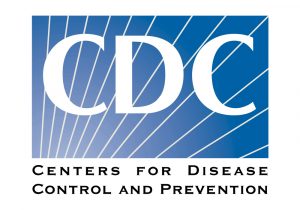 As COVID-19 cases continue to be reported by the hundreds on a daily basis, and as businesses begin the process of returning to the worksite, it is imperative that property managers—both commercial and residential—understand their duties and responsibilities with respect to disclosure of COVID-19 cases. As difficult as it may seem, timely and accurate disclosure that an individual who has tested positive for COVID-19 has been onsite is the best practice for everyone’s health and safety, and also to limit liability. Disclosure, however, must be undertaken carefully to ensure that the disclosure is given to the appropriate individuals and entities, that individual medical privacy is preserved, and that disclosures are made in compliance with all applicable laws, regulations and guidelines.
As COVID-19 cases continue to be reported by the hundreds on a daily basis, and as businesses begin the process of returning to the worksite, it is imperative that property managers—both commercial and residential—understand their duties and responsibilities with respect to disclosure of COVID-19 cases. As difficult as it may seem, timely and accurate disclosure that an individual who has tested positive for COVID-19 has been onsite is the best practice for everyone’s health and safety, and also to limit liability. Disclosure, however, must be undertaken carefully to ensure that the disclosure is given to the appropriate individuals and entities, that individual medical privacy is preserved, and that disclosures are made in compliance with all applicable laws, regulations and guidelines.
Disclosure to Management
As a preliminary matter, as a best practice, all tenants should be advised to follow CDC guidance, as well as any applicable federal, state and local regulations and guidance regarding social distancing, face coverings, and other measures to protect users of the building from exposure to the virus. Employers and commercial landlords are legally entitled to, and should, require employees and commercial tenants to report—in a confidential manner—positive cases of COVID-19 by individuals who have been onsite. Residential landlords are not permitted to require, but should still request, such disclosures if tenants have access to common areas, such as lobbies and elevators. Disclosure of confirmed cases is a critical element of implementation of contact tracing and proper cleaning protocols to contain the virus.
Disclosure to Tenants
Whether a commercial or residential landlord is required to notify tenants of a confirmed case may vary by jurisdiction and requires consideration of multiple factors.
New York’s Department of Health, for example, has issued interim guidance applicable to commercial/non-residential property management entities as “minimum requirements” for Phase II of the State’s reopening. The interim guidance requires property managers to screen all users of the building on a daily basis for symptoms of COVID-19, via questionnaire, and require those who enter the building to provide notice to the property manager of a positive test for the virus. When notified of a positive COVID-19 test, the property manager must notify all entities occupying space in the building immediately and must provide them with information on where the individual has been throughout the building; property managers must also immediately notify the state and local health departments. Accordingly, it is vital to familiarize yourself with the requirements of the applicable law, as well as the ever-changing guidelines from the CDC and OSHA.
As another example, District of Columbia’s Department of Health, has issued interim guidance for owners and operators of apartment buildings and condominiums/co-ops during Phase Two of the District’s reopening. This guidance instructs building owners and operators to screen employees on a daily basis for symptoms of COVID-19, via questionnaire, for example, and encourage tenants and visitors to remain vigilant about monitoring themselves. The guidance further provides that facilities should notify the District of Columbia’s Department of Health, via email to coronavirus@dc.gov, if an employee notifies the facility that they tested positive for COVID-19 AND the employee had extensive contact with co-workers, residents or visitors or if an employee, resident or visitor notifies the facility they tested positive for COVID-19.
Disclosure of the positive case as well as disclosure of the cleaning protocols and other safety measures that management will take in response thereto is highly recommended, whether or not such disclosure is required, to promote health and safety, limit liability and, hopefully, offer some reassurance. Once management becomes aware of a tenant testing positive, steps should be taken to notify all other tenants, employees, vendors and visitors who have may have been exposed to the sick individual of the dates that an individual who has tested positive for COVID-19 was in the space. Notice should be provided through multiple avenues to ensure receipt, such as mail, email, and posting on a community bulletin board.
Protecting Privacy
While disclosure is highly recommended, and, in some instances, legally required, management must protect the sick individual’s privacy at all times. Unless you have specific permission from the individual, do not include the individual’s name or other identifying characteristics in any disclosure, and confirm the disclosure is compliant with any applicable privacy law and/or regulation. Depending on the size of the building, you might disclose only the floor of the building visited by the infected individual. For small properties, balancing disclosure and privacy can be quite difficult. You may always first reach out to the individual directly to explain to them the importance of the disclosure and request the individual’s permission. If the individual declines, you should then consult applicable law and/or consult an attorney to determine the best way to provide general notice of the confirmed case.
Given the complexity of these issues, the differing requirements among industries and jurisdictions and the ever-changing guidelines and requirements, consulting with legal counsel to put in place a COVID-response action plan is highly recommended.
 Gravel2Gavel Construction & Real Estate Law Blog
Gravel2Gavel Construction & Real Estate Law Blog


